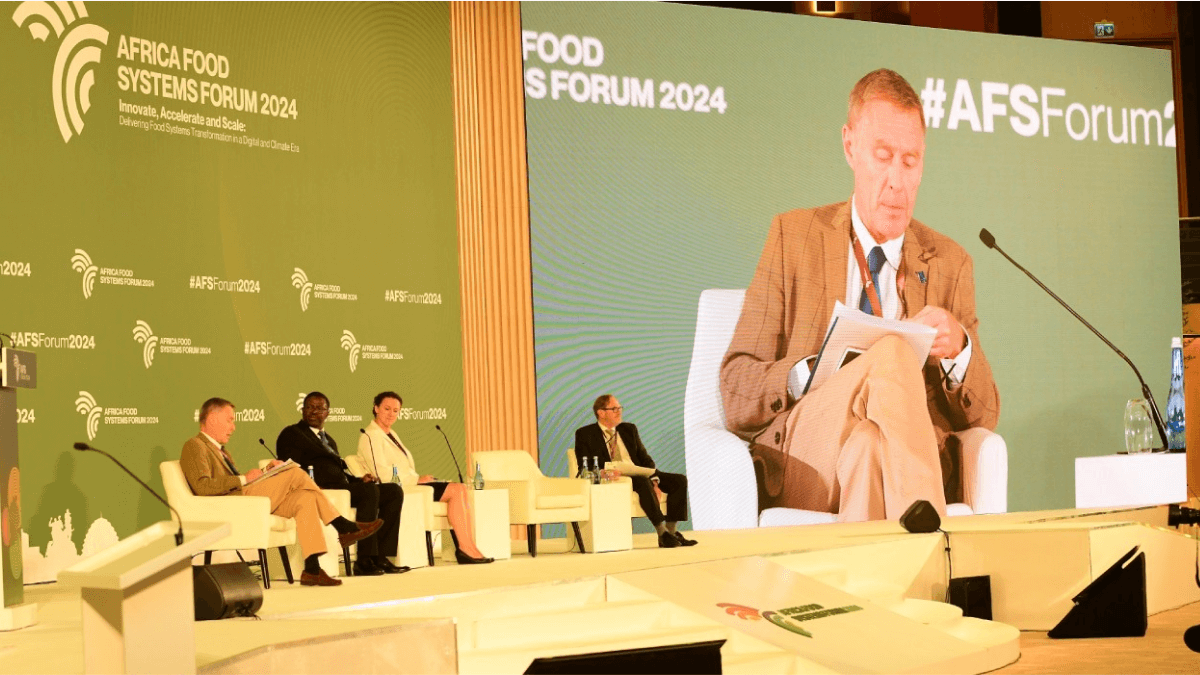News in brief:
– IFAD urges for increased investment in transforming Africa’s food systems at the AFSF 2024.
– Africa’s agriculture sector faces challenges but holds great potential, expected to be worth $1 trillion by 2030.
The International Fund for Agricultural Development (IFAD) has stressed the need for accelerated investment in Africa’s food systems at the Africa Food Systems Forum (AFSF) held from September 2-6, 2024, in Kigali, Rwanda.
Speaking at the event, Donal Brown, IFAD’s Associate Vice-President, emphasised the importance of scaling up investments to address the growing challenges facing African agriculture.
Key challenges facing Africa’s food systems
A food system refers to the entire process involved in getting food from farms to consumers, including production, processing, distribution, and consumption. Transforming food systems means making every part of this process more sustainable, efficient, and inclusive. Africa’s food systems are under immense pressure from multiple fronts:
- Climate Change: Rising temperatures, unpredictable weather patterns, and extreme weather events are threatening crop yields and livestock production.
- Depleted Soils and Water Sources: Decades of overuse and poor management have left many parts of Africa with degraded soils and limited water resources.
- Strained Budgets: Many governments lack the financial capacity to invest adequately in agricultural development and food security.
Despite these challenges, the potential for growth in Africa’s agriculture sector remains immense. According to IFAD, the sector is expected to be worth $1 trillion by 2030.
The case for investment
Brown highlighted the need for smart investments in Africa’s agriculture. He pointed to the growing number of small and medium-sized enterprises (SMEs) operating across food value chains. These businesses are often driven by innovative and technology-based models, and they hold the key to transforming food systems across the continent.
However, the challenge lies in ensuring that the benefits of these investments are distributed equitably, particularly to women, youth, and marginalised groups in rural areas.
IFAD’s commitment to Africa
IFAD has made a significant commitment to investing in Africa’s rural economies. Between 2025 and 2027, the organisation plans to allocate up to 60% of its core financing to projects in Africa. This will focus on empowering small-scale producers, rural enterprises, and entrepreneurs, with the ultimate goal of driving change across the continent.
According to the organisation’s Associate Vice-President, the success of these investments depends on strong partnerships between governments, development institutions, and the private sector.
“We need to work urgently and unlock the enormous opportunities available through transformative investments,” he said, stressing that Africa’s future food security depends on how these investments are structured today.
Key takeaways for global farmers
While this conversation is focused on Africa, the challenges and solutions discussed at the AFSF are relevant to farmers worldwide:
- Climate Resilience: Farmers globally need to adapt to changing climates by adopting climate-smart agriculture practices.
- Innovative Solutions: Technology and innovation are key to building more sustainable and resilient food systems. Global farmers can benefit from adopting new farming methods, improving water use efficiency, and exploring new markets.
- Partnerships and Investment: Just as in Africa, investment in food systems worldwide requires collaboration between governments, financial institutions, and the private sector.
IFAD’s message is clear: the future of global agriculture depends on smart, inclusive, and sustainable investments today.
As the world’s population grows and food security becomes more critical, forums like the Africa Food Systems Forum provide vital platforms for collaboration and innovation. The lessons learned and solutions developed in Africa can have far-reaching impacts, offering a roadmap for transforming food systems worldwide.



